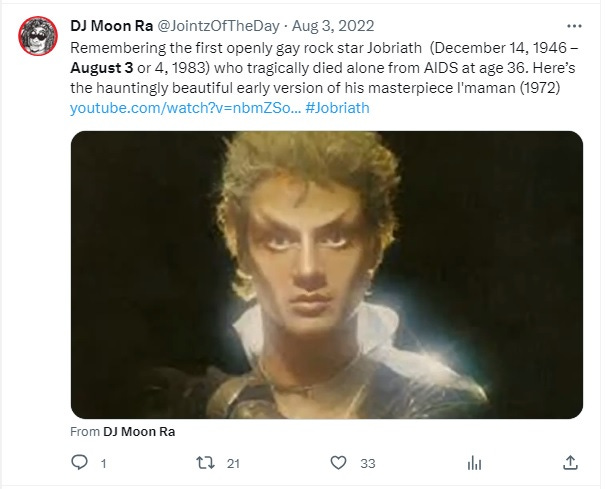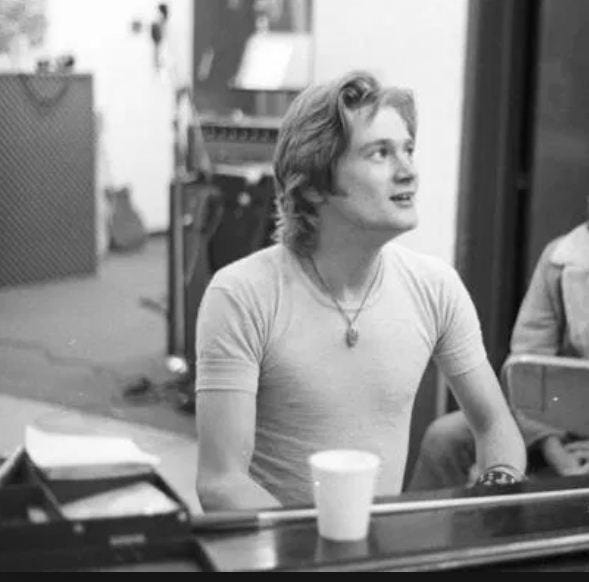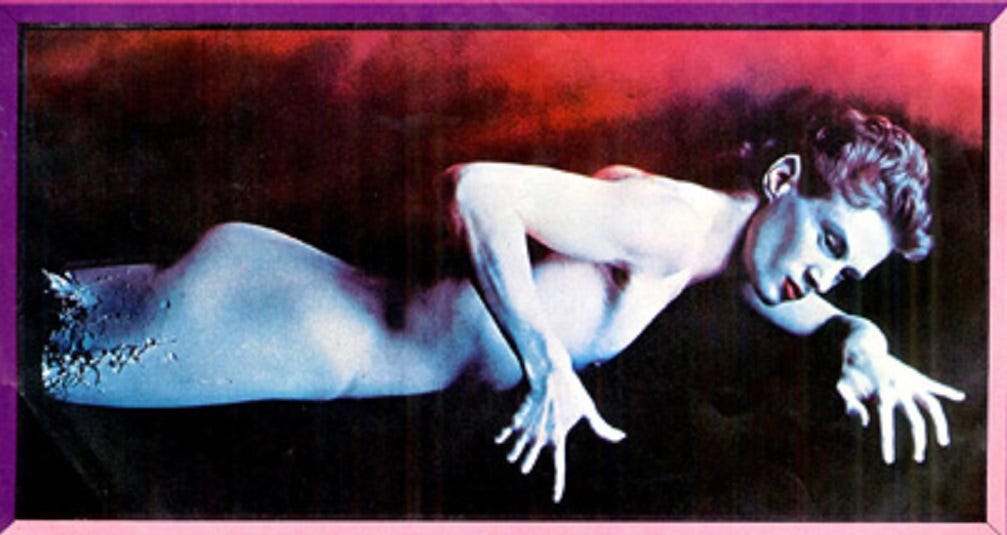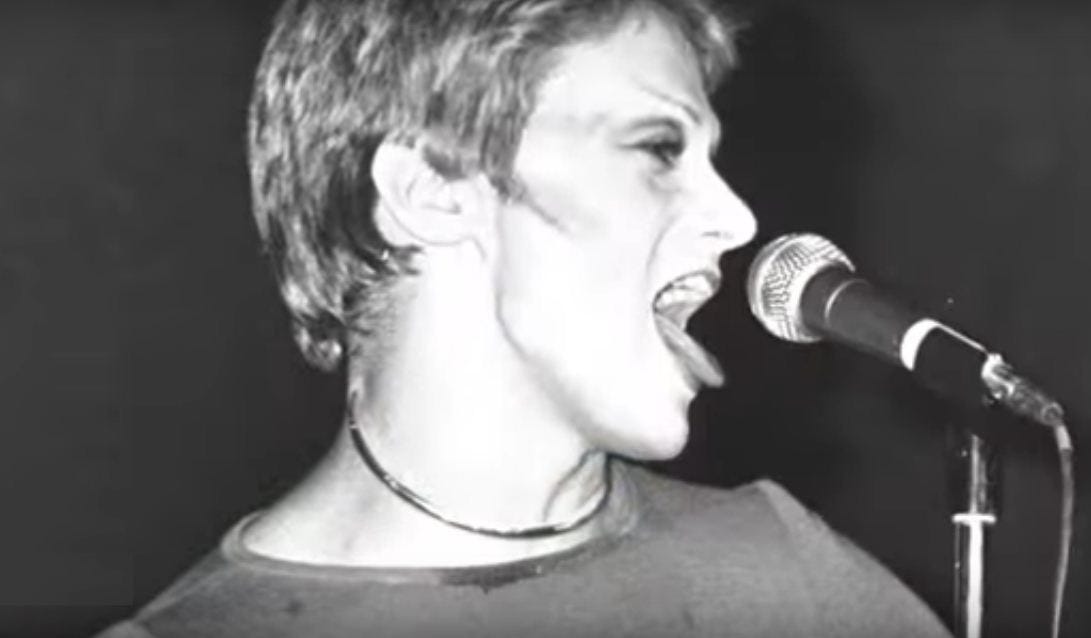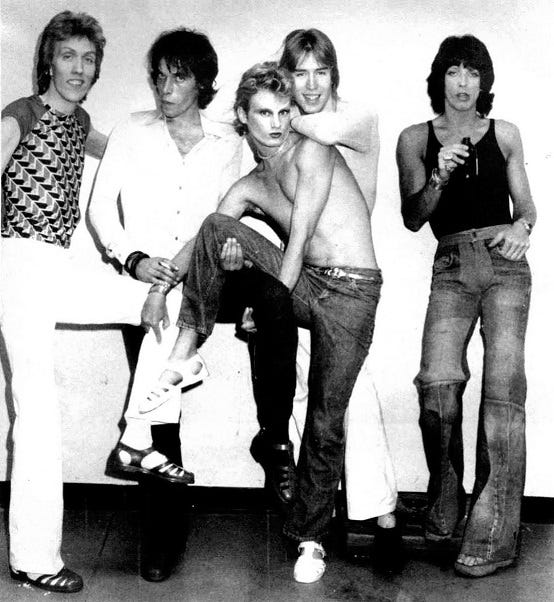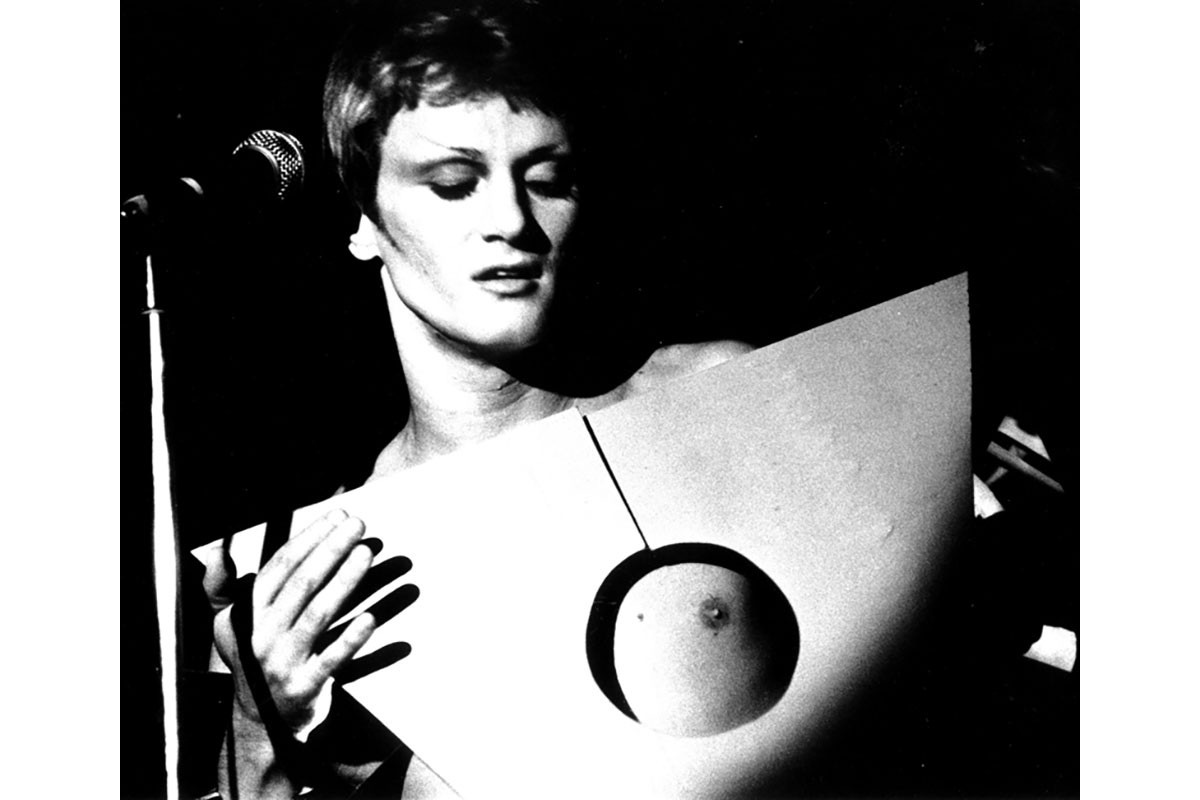Jobriath (December 14, 1946 – August 3 or 4, 1983) – I'maman (1972)
This hauntingly beautiful, early acoustic version of Jobriath's masterpiece was recorded at Electric Lady Studios, produced by Richard Podolor.
Watch full video on Twitter.
View most updated version of this post on Substack.
Bruce Wayne Campbell aka Jobriath was a very talented singer/songwriter and pianist who became the first openly gay rock star in the early 1970s, only to see his career cut short before it had a chance to take off. The era’s homophobia was largely to blame, plus a marketing campaign that tried to sell him as the next Bowie and backfired spectacularly.
Born in small town King of Prussia, Pennsylvania, Campbell learned to play the piano at a young age and played organ at his church. After graduating from high school in 1964, he formed a folk trio called The Last Three. He studied music for one semester at Temple University before dropping out, and after being drafted into the Army in the mid-60s, went AWOL within months. Campbell then moved to Los Angeles and renamed himself Jobriath Salisbury.
He went to an audition for the West Coast production of Hair, playing piano for a friend who was trying out. While there, the producers were wowed by his piano skills and singing voice, and he was cast as Woof, one of the musical’s lead characters (who was implied to be gay). He was eventually fired from the role for supposedly upstaging the other actors. In 1969, he joined the folk-rock band Pidgeon as their lead singer and pianist. The group released their self-titled debut LP later that year on Decca Records, but dissolved soon afterwards.
Jobriath was tracked down and arrested by MPs and spent nearly six months in a military psychiatric hospital before being discharged from the Army. In 1971 and early 1972, he wrote and recorded several demo tracks with producer Richard Podolor at Electric Lady Studios in New York City.
One was a hauntingly beautiful, early acoustic version of his masterpiece “I'maman.” A later electric version appeared on his own self-titled debut LP, released in 1973. It was immortalized when he and his backing band performed it live during their only nationally televised appearance, on The Midnight Special in 1974, after being introduced by Gladys Knight.
Now calling himself Jobriath Boone, he sent his demos to record companies, and in mid-December 1972, Carly Simon's former manager Jerry Brandt heard Clive Davis playing them at Columbia Records. Davis passed, but Brandt tracked Jobriath down in California and signed him to a ten-year management contract. He then secured him a two-album deal with Elektra Records for a purported $500,000, the largest record advance in history at that time.
Brandt hyped Jobriath as the next Bowie, and made his openly gay status the centerpiece of the record company’s marketing campaign. There were full-page ads in Vogue, Penthouse, and Rolling Stone, full-length posters on 250 New York City buses, and a giant billboard in Times Square. They all featured the cover of his debut album, with Jobriath lounging naked as if he were a Roman statue.
Plans were announced for a three-night debut engagement at the Paris Opera, at which Jobriath told reporters he would appear as “King Kong being projected upwards on a mini Empire State Building. This will turn into a giant spurting penis and I will have transformed into Marlene Dietrich.”
The hype went way overboard, but Jobriath’s talent was real, as evidenced by superb tracks on his first album like “Morning Starship” and the hard-rocking message song about intolerance and persecution “World Without End,” which featured Peter Frampton as special guest guitarist. Among the LP’s backup singers were future disco solo artists Tasha Thomas and Rhetta Hughes. It was co-produced by Jobriath and Eddie Kramer, and recorded at Olympic Studios in London.
Critical reception of the album was relatively positive when it hit stores on June 15, 1973, with Rolling Stone saying Jobriath had “talent to burn.” But sales did not materialize, and the LP failed to chart.
Elektra’s response was to rush Jobriath’s second album Creatures Of The Street out the door in January, 1974, barely six months after the first had been released. Nearly all of it was material left over from his debut album’s recording sessions, but it still contained many brilliant tracks, like the beautiful “Gone Tomorrow,” the stellar jam “Liten Up,” and the LP’s masterpiece, the rocking anthem “Ooh La La,” which returned briefly in the funky “Ooh La La (Reprise and Exit Music)” to close out the album.
Frampton was again featured on guest guitar, along with bassist John Paul Jones of Led Zeppelin, and superstar session musicians Bernard “Pretty” Purdie on drums and guitarist Cornell Dupree.
In 2019, noted actor Dennis Christopher of Breaking Away fame, who worked for fashion designer Halston in the 70s, revealed to Jointz Of The Day the previously unknown back story of Jobriath’s costume for the album cover:
“I designed the transparent jacket Jobriath wore. It was from my Halston III collection for Halston. It was never returned.”
This time, there was no fanfare or elaborate marketing campaign. Creatures Of The Street was simply shipped to stores, and it sank without a trace. The plans for Jobriath’s expensive live debut at the Paris Opera House were scrapped, and instead, he was booked for a March 8, 1974 appearance on Bert Sugarman’s new weekly late-night TV series The Midnight Special, which had begun airing on Friday nights in early February.
A live backing band named the Creatures was hastily recruited, with bassist Jim Gregory, drummer and future disco producer Gregg Diamond, and keyboardist Hayden Wayne joining guitarists Steve Love and Billy Schwartz, who had both played on Jobriath’s two albums.
They only rehearsed for a couple of months before the The Midnight Special show was taped. Jobriath and the Creatures performed two songs, “I’maman” and “Rock Of Ages,” both from the first album, the latter substituted for “Take Me I’m Yours” after the show’s producers objected to its S&M-themed lyrics. The band was tight, rocked hard, and the live audience dug them, but the ballet choreography and clownish costume that Jobriath appeared in during “I’maman” detracted from the song’s epic nature. When he finally shed the costume halfway through the performance, everything came together.
Jobriath’s national television debut came too late to help sell albums, but it allowed the band to embark on a U.S. tour that spring and record new material at studios along the way, intended for a third album. Before it was over, despite several sold-out shows, Elektra and Brandt pulled their financial support. But the band played on, continuing to bill the label for expenses as they finished the tour. Their final concert at the University of Alabama in Tuscaloosa, of all places, was sold out and ended with the audience standing on their seats, screaming. The band did five encores and the show had to be shut down after a small fire broke out, the hall began filling with smoke, and the fire department arrived.
The Creatures broke up and in January, 1975, Jobriath announced his retirement from the music industry. He never released anything else in his lifetime, although was rumored to have recorded disco demos during the late seventies that remain unheard to this day.
He moved into a pyramid-shaped penthouse apartment atop the Chelsea Hotel in New York City and adopted a new persona dubbed Cole Berlin, working as a cabaret singer and pianist at the West Village restaurant Covent Garden. In a rare 1979 interview with Omega One magazine, he stated that “Jobriath committed suicide in a drug, alcohol and publicity overdose. That whole hype just drove him crazy.” The chapter of his life as Cole Berlin was captured briefly in a BBC documentary on the Chelsea Hotel that aired in 1981.
In 2012, the excellent documentary on his life and times Jobriath A.D. was released, which is currently available to watch in full on YouTube.
Sadly, Jobriath’s end was tragic. He contracted HIV in the early eighties, and exactly forty years ago, on August 3 or 4, 1983, sat slumped over his grand piano on the second floor of his pyramid apartment, dead from complications of AIDS at age 36. He died alone and his body wasn’t discovered for days.
Further info:
“Jobriath,” by Hayden Wayne (keyboardist with the Creatures), 2008.
“Jobriath – As The River Flows: the unreleased recordings (1971-72),” by Alejandro De Luna, The Sense Of Doubt, June 17, 2014.
“The Unbelievably True Story Of Jobriath, The First Gay Rock Star,” by Chris Thomas, High Snobiety, 2017.
#glam #rock #folk #LGBTQ #Jobriath


